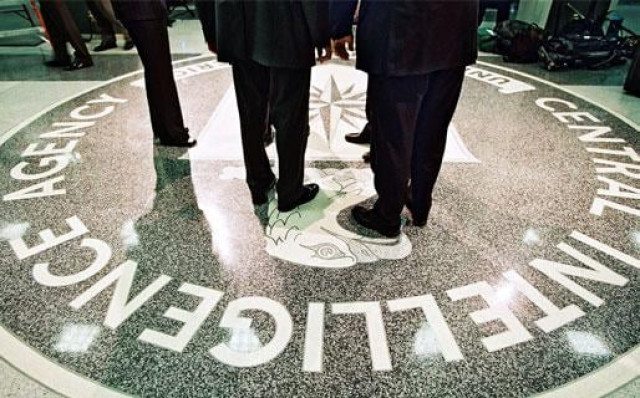Movement curbs: As Pakistan tightens the screws, US presses for relaxation
Diplomats now required to file paperwork for outstation visits.

The United States is pressing Pakistan to withdraw ‘stringent curbs’ imposed on the movement of diplomats and non-diplomats, fearing they may put Central Intelligence Agency (CIA) operatives at risk. However, authorities seem adamant to ensure that the US obeys protocols in the aftermath of the Abbottabad raid and the Raymond Davis fiasco.
Pakistan recently started implementing new measures seeking to restrict the movement of CIA operatives, which has resulted in a number of incidents of diplomats being sent back to their base city.
In January this year, the foreign ministry directed diplomatic missions, UN agencies and international organisations to seek permission for movement of diplomats and non-diplomats outside Islamabad and all provincial capitals.
According to the new procedure, members of diplomatic missions are required to send to the foreign ministry their request of visits outside Islamabad and provincial capitals at least five working days in advance.
However, as part of an understanding, US diplomatic missions, particularly CIA operatives, were exempted from this restriction until the Abbottabad incident.
“They (US) betrayed us. They exploited us and they lost our trust,” said a security official, citing the reason behind seeking greater scrutiny of the movement of US diplomats and intelligence operatives.
“They will not be provided unfettered access now as they were before the Abbottabad raid,” said an official, who requested not to be named.
“At least three of the seven US embassy officials denied entry into Peshawar (on Wednesday) were CIA operatives,” disclosed another official familiar with the development.
According to documents obtained by The Express Tribune, diplomats and CIA operatives are now required to fill in a detailed form and submit it before visiting any part of the country.
The proforma makes it mandatory for diplomats and non-diplomats based in Pakistan to provide details of their passport, areas to be visited, complete address of places, duration of stay, exact purpose of visit, place of stay and names of their hosts to obtain an NOC. However, the US is resisting the move fearing that it will expose CIA operatives, who frequently travel in different parts of the country particularly Khyber-Pakhtunkhwa, said the official.
“We are trying to plug in the loopholes that we identified after the Bin Laden incident,” the official said.
“With the introduction of these restrictions, we will be in a better position to know exactly who is travelling where and meeting whom and for what purpose,” he added. Sources in the foreign ministry have confirmed that it is under intense US pressure to do away with restrictions for the US missions across the country.
“We have been telling them (Americans) that this is not possible now and you have to strictly follow the procedure,” said a source in the foreign ministry. The controversy adds tension to already strained ties between the two countries due to Pakistan’s move to expel American military trainers and a crackdown against the ‘private CIA network’ in the country following the Bin Laden debacle.
New CIA chief backs Pakistani efforts
Meanwhile, over in Paris, US General David Petraeus admitted Wednesday there was no option but to work on troubled relations with Pakistan, days after standing down from his job at the helm of coalition forces in Afghanistan.
Speaking in Paris on his way to his new job as CIA chief, he said Afghanistan’s neighbour wanted to eliminate Al-Qaeda and Taliban militants, but was struggling.
“They’ll be the first to say that there are limits to how much they can do,” said the man who headed the United States’ longest-running war for the last year, with less territory controlled by militants today but civilian deaths up.
“They have a lot of short sticks in hornets nests right now and they have to consolidate some of those gains.”
“This relationship is in a difficult stage,” Petraeus said, blaming WikiLeaks revelations, the arrest of CIA agent Raymond Davis as well as the killing by US forces of Al-Qaeda kingpin Osama Bin Laden in Pakistan in May.
He said it was believable that Pakistani intelligence did not know that Bin Laden was hiding out in Abbottobad, home to much of the Pakistani military establishment.
“It is credible to me that they did not know. We received no intelligence whatsoever to indicate that there was any awareness that he was there.” But while “we see the Bin Laden raid as an extraordinary success, intelligence together with military forces, Pakistan sees it as an affront to their national sovereignty, we’ve got to work our way through this”.
“We know what happens when we walk away from Pakistan and Afghanistan, we’ve literally seen the movie before,
“it’s called ‘Charlie Wilson’s War’ (about covert US support for anti-Soviet Afghan fighters) and indeed that is not in my view a good option.
“However difficult the relationship may be it’s one we need to continue to work, it’s one where we need to recognise what our Pakistani partners have done, they’ve sacrificed several thousand soldiers and police and their civilians have suffered substantial levels of violence.”
Published in The Express Tribune, July 21st, 2011.



















COMMENTS
Comments are moderated and generally will be posted if they are on-topic and not abusive.
For more information, please see our Comments FAQ